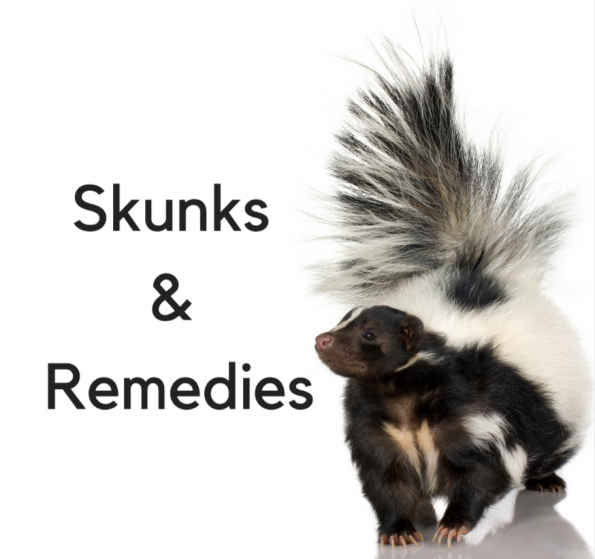So, Your Pet was Skunked
Here in Vancouver we have many wild animals sharing our urban areas, raccoons, squirrels, coyotes and skunks are just a few commonly seen critters in the lower mainland. Most of the time we don’t encounter these animals in a negative way, however, some of our more curious cats and dogs can have nasty run ins. Although coyotes and raccoons can be a dangerous predator to our pets, today I’m going to focus on skunks and how to deal with your pet getting sprayed.
Skunks are prevalent in Vancouver; we most commonly see them during the spring and summer, however they do not hibernate, so encounters during the winter are not impossible.
Skunks are gentle, burrowing mammals; in the wild they dig holes near the base of trees or wood stumps to make dens. In more urban settings they can be found under decks, sheds, and houses where they hollow the ground to create a den lined with grass and leaves. Typically skunks are most active during the night; however daytime sightings are not uncommon.
For the most part skunks are harmless, only showing aggression if feeling cornered or protecting their young. If threatened, a skunk will respond by growling, fluffing up its fur, lifting its tail and stamping the ground with its feet. If this doesn’t deter the intruder, the skunk will lift its tail up over its head and spray.
The chemical skunks spray is a Sulphur compound, ejected through two small openings near the rectum. The glands that produce the chemical hold enough for five or six full powered sprays. Each spray is very accurate and can reach distances up to 4 ½ meters! Luckily for us humans, a skunk will rarely spray without warning or cause. However our four legged counterparts do not always recognize the warning signs and the encounter ends with a very smelly pet
One remedy to use if your pet gets skunked
Keep your pet contained to avoid spreading the odor. The odor can last on clothing, furniture and fur for days or even weeks.
While there are many products on the market boasting to remedy the stinky smell of a skunks spray, we find this at home solution to be the most effective.
Mix together:
1 Qt. Hydrogen Peroxide (3% – use 2 bottles)
1 Small box of baking soda
1 Tablespoon of pet shampoo
Wearing rubber gloves, spread over the pet and work in for 10 minutes – AVOID EYES.
Rinse with lots of warm water, and then bathe with pet shampoo as usual. The treatment can be repeated if the odor is still present.

